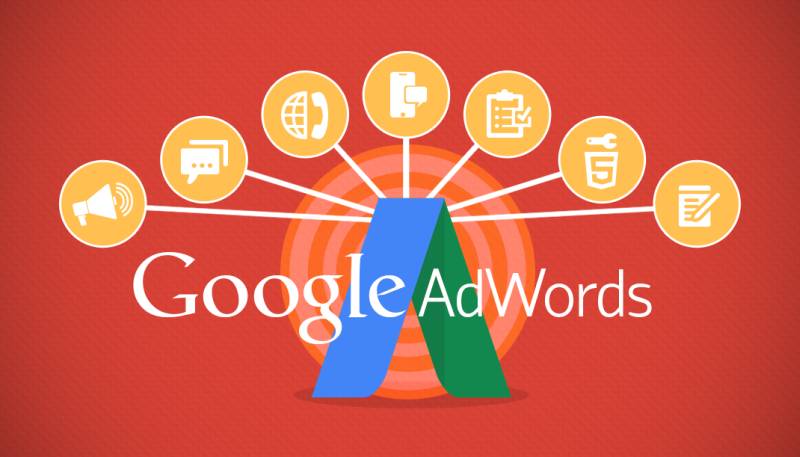
Best tips to get an effective Google Adwords Campaign
Category : Google Ads
The key to increasing sales with Google Ads lies in testing and optimization. But where to start? Whether you are a new store owner or a seasoned advertiser, there are a number of must-test Google tips you should be implementing in your optimization strategy.
Up Your Negative Keyword Game
Negative keywords are one of the most powerful elements of your Google Ads campaigns. Although often overlooked by novice Google Ads advertisers, negative keywords ensure that you’re eliminating searchers that aren’t relevant to your products and niche. The three key benefits of using negative keywords are that they:
Keep ROIs on point, as they prevent spending money on keywords where you won’t get a good return
Ensure searchers are only shown ads that are relevant to what they are searching for
Increase the likelihood of more targeted traffic, which in turn increases conversion potential
Negative keywords are one of the first optimization steps you should take to improve the performance of your campaigns or ad groups.
To increase sales from your Google Ads, you want to test adding negative keywords to campaigns or ad groups that have poor metrics. This includes ads that have low CTRs or your high-cost ads that are yielding few or no conversions.
Finding Negative Keywords
There are three ways you can discover possible negative keywords for your campaigns:
– Use Google’s autocomplete feature to point to the relevance, or lack of relevance, of your keywords.
– Use Google to search for the keywords you’re advertising with or want to test, to see who is advertising with those keywords as well as what organic search results come up. For example, you may be considering glasses as a good search term for your homeware product, but it is more likely to bring you a lot of people looking for eyeglasses and thus negatively affect your CTRs.
negative keywords affect search
– Use keyword research tools such as SEMrush or Kparser
Assess what search terms are showing your adverts and tune out irrelevant searches through keyword search terms and negative keyword management.
Monitor what phrases people are searching for that click through on your advert, but you may not have considered. Add these terms to your keyword list, or if they are not relevant then add them to the negative keyword list to prevent your ad showing. Adding negative keywords help you focus on only the keywords that matter to your customers. Make sure you prepare a Negative keyword list for your campaign from the start too, what type of visitor do you not want to attract?
For example, if you are not wanting job hunters consider adding job, jobs and apprentice to your negative keyword list.
Find this on the new UX: Left hand side panel: Keywords – Tab: Search Terms – Tab: Negative Keywords
Spread the impressions around
In addition to collecting enough data, you also need to make sure your data is properly distributed among your ads. The temptation is to use the AdWords default option to “optimize for clicks,” but doing this might cause more traffic to go to certain ads over others. In the first stages of optimizing, it’s more important to spread out clicks so you give all ad variations a fair shot. Set ads in new campaigns to “rotate indefinitely.”
Block bad Display Network placements
The Display Network is a great source of cheap, high-volume traffic. But if you’re not careful, you’ll end up paying for a ton of clicks that don’t convert into leads and sales.
If your Display Network CTR is suffering, try running a Placement report in Google AdWords. This report will show which Display Network websites are showing your ads, as well as metrics such as impressions and conversions from each of those sites. Identify which websites don’t send converting traffic and block them in your campaigns. Oftentimes, you’ll find these websites have little to do with the goods and services you’re marketing.

Google Adwords Campaign
Stretch Your Budget With Long Tail Keywords
Another way to refine your campaigns to ensure you are getting more targeted traffic that converts is to test and add long tail keywords. Long tail keywords mean less competition and a higher chance of converting, and even though they are seen as ‘unpopular’ they can lower CPCs while increasing sales. In one ahrefs study of 1.9 billion keywords, they found that 29% of keywords with 10k searchers per month consist of three words or more.
You can find long tail keywords with the help of either Google’s autocomplete, or ahrefs or other keyword research tools. However, you also want to look at your current organic traffic data to find possible long tails people are using to get to your products that you haven’t thought about.
There is one additional approach worth outlining here specifically, and that’s using sites like Answer the Public to find questions people are asking. Questions are a great way of using long tail keywords to your advantage.
Always split test new ads
A good online advertising strategy is always evolving. Riding the performance of a single high-performing ad is only a recipe for temporary success. Split testing at least two ads per ad group is essential for maintaining success and staying ahead of the curve.
Early on in your campaign, don’t waste time split testing ads that are just slight variations of each other. Instead, write ads that employ different sales tactics. Try one ad that touts a benefit of what you’re selling, then another that mentions your limited-time sale. You can also write ads that appeal to emotions using simple, powerful words such as “imagine” and “discover.”
Don’t instantly give up on ads that you’re split testing. Go through your standard steps of optimization. That said, don’t hesitate to shut down a struggling ad and replace it with something completely new.
Audit Your Keywords and Remove Duplicates
As you’re growing your Google Ads campaign list while optimizing and adding keywords, it’s common for even experienced advertisers to forget to remove duplicate keywords.
Why is it so important to stay on top of your keywords and remove duplicates? Because they impact your Quality Score while eating up your budget unnecessarily. If you’re bidding on the same keyword more than once, both are submitted to auctions and thus you’re essentially competing with yourself and unnecessarily increasing CPCs.
That’s not to say there aren’t instances where you should bid on duplicate keywords. Duplicates are effective when:
– Bidding on the same keywords that will be used for different placements, search and display ads.
– Using different match types for duplicate keywords.
– Ads are segmented to serve difference locations; you would then bid on the same keyword in each campaign that services a different place.
Read more How to increase your sales by Google Ads
_______________________________________________________________________________
Please contact us for seo service packages at TDHSEO.COM.
TDHSEO Team
Email: tdhseo@gmail.com
Skype: tdhseo
https://www.facebook.com/tdhseo
Thank you!